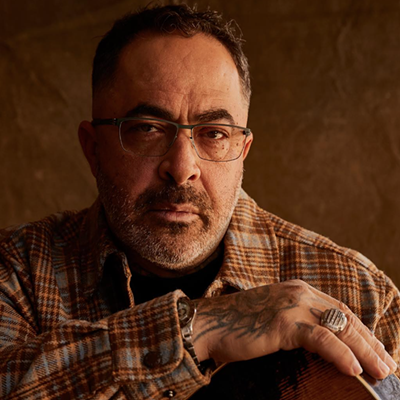The Confederate flag flies high over the county government complex in the northern Florida city of Ocala, where Dr. James Scott Pendergraft was convicted in February of extortion, conspiracy and mail fraud by the U.S. government. In an unprecedented attack on an abortion provider through the criminal justice system, local officials in Ocala collaborated with federal prosecutors to shut down Pendergraft on the grounds that he conspired with a colleague to extort money from the government. An African-American late-term provider who owns five Florida clinics, Pendergraft received a sentence of almost four years in jail and a $25,000 fine on May 24. He has filed an appeal with the 11th Circuit Court of Appeals. His petition to remain free on bond during the appeals process was denied by a federal judge. His appeal of that decision was also denied. He has requested an emergency appeal to a three-judge panel. There was no ruling as of press time.
The prosecution charged that Pendergraft and his business consultant, Michael Spielvogel, acted illegally by asking for an exorbitant settlement sum in a civil lawsuit they brought against the city and county in 1998. Pendergraft maintains his innocence, arguing that the government's charges against him stem from the personal anti-abortion agendas of local officials. "They weren't interested in getting the truth," he says defiantly. "They were interested in getting me."
During Pendergraft's trial, the judge and prosecution frequently claimed that the charges were about extortion, not abortion. Pendergraft's attorneys disagree. The two principal witnesses against the doctor — County Commission chairman Larry Cretul and Marion County attorney Virgil Wright — are members of the First Baptist Church of Ocala, a decidedly "pro-life" institution whose 4,500 congregants were urged to protest Pendergraft's clinic in Ocala three and a half years before his trial. Pam Piersante, the FBI agent who worked with the U.S. prosecutor to charge Pendergraft, attends the Queen of Peace Catholic Church in Ocala, where many clinic protesters are members. Her priest, Patrick O'Doherty, wrote to Pendergraft mournfully querying, "Doctor, how can we honor you since the services you provide are "death' to children and as you know sometimes "death to mothers'? God wants you to stop doing abortions."
The jury — eight women and four men, all white but one, and most of retirement age — was also stacked against Pendergraft, explains defense attorney Larry Colleton. "The judge limited our ability to ask questions. Maybe six or seven of the 100 questions we proposed were asked. I don't think we really ever got to know the people who were selected, and that hurt." Even more important, observes Susan England, an Orlando attorney who's been following Pendergraft's case, was that jurors' religious affiliations and abortion views were deemed irrelevant to the trial. "The examination of prospective jurors amounted to "What's your name, address and phone number? Don't care if you're pro-choice or anti-choice, do you think you can render a fair decision? Thank you.'"
Was it possible for Pendergraft to get a fair trial, one that had "nothing to do with abortion," in Ocala — where the last abortion clinic was burned to the ground in 1989, and no one was ever charged? Or for that matter in Marion County, "God's country," where a county commissioner designed popular state license plates with "Choose Life" scrawled in childlike writing? Were the authorities "sexist, consumed by religious bias, incompetent or something more sinister?" asks longtime Floridian and feminist clinic owner Patricia Baird-Windle. Manager of Pendergraft's Ocala Women's Center, Diana Bellomo, a lifelong Ocala resident raising her own family there, is sure of the answer: "When you come to a city like this, where nothing is ever going to change, where they disliked Dr. Pendergraft before he ever came here, you know it's going to be unfair."
Abortion is especially rancorous ground in Florida, scene of the first killing of an abortion doctor by an anti-abortion protester in 1993, and of noisy protests outside abortion clinics across the state. In this atmosphere, the 43-year-old Pendergraft, with his high-profile chain of full-service clinics, is seen as a public pest. He probably provides more abortions in his five clinics than any other doctor in the state, if not the country. His Orlando clinic alone does a whopping 5,000 procedures a year. Pendergraft advertises his clinics aggressively, undercuts other providers' prices, speaks openly about the harassment he faces, does his rounds in a bulletproof vest and owns a firearm. After abortion provider Barnett Slepian was murdered in Buffalo in 1998, Pendergraft told ABC News, "Abortion is a cause worth dying for." And he still believes it. "It's worth it to me to fight," he says. "You got a lot of people being scared out of this business. But I'll fight until I don't have anything 'cause I came from nothing."















